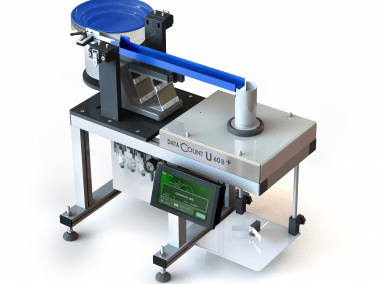White Papers - How Data’s Advanced Technology Can Solve the Challenges of Industrial Manufactures
How Data’s Advanced Technology Can Solve the Challenges of Industrial Manufactures

As technology evolves, an increasing number of products are becoming smaller than their previous models. Correspondingly, components used to manufacture these products are also becoming smaller and smaller, down to micro-components which are not much larger than a speck of dust.
When it comes to industrial manufactures/manufacturing, injection molding has become a common practice to reach such small object sizes while maintaining uniformity repeatedly. Although injection molding is the leading-edge platform for manufacturing parts with high efficiency and homogeneity, minor variances between parts can still occur. In effect, the smaller and lighter the object, the more significant the deviation.
Processing these micro components after manufacturing can be tricky, especially when it comes to packaging. Typically, even though the components are sold by quantity, the use of weighting methods based on pre-determined part weight is commonly found.
Small variances between parts can lead to significant implications when it comes to the use of part weight. In packaging, such variance can lead to a shortage or surplus of parts that are given away for free, with no actual indications of the inaccuracy level. Inventory control is based on estimated quantities, which may affect production decisions.
DATA’s patent counting technology is designed to address these challenges by providing a simple, reliable, and efficient platform for packaging small complex components. Based on the detection capabilities of objects as small as 0.5mm and accuracy levels of nearly 100%, this technology is ideal for handling intricate molded and micro-molded parts.
With DATA’s systems, products do not need to be separated over separate lines, nor do they need to be fed one by one or paced at specific intervals; as is often the case in conventional counting systems, they are counted in bulk. A single system can handle a wide range of objects without the need for mechanical adjustments, which is ideal for companies that deal with diverse parts. The automated process reduces the need for manual intervention, and all counting data is saved and can be easily retrieved and analyzed.
DATA’s counting technology delivers versatile solutions for industrial manufacturers, which can be implemented in QA departments, in-line integration in production stations as well as packaging and inventory management. By using DATA’s counting technology, companies can reduce labor costs, and reach higher efficiency in the entire processing chain, including eradicating the need for over-fill during packaging and improving their inventory control. Expense reduction and product savings due to exact counts lead to rapid ROI and increased profitability.
